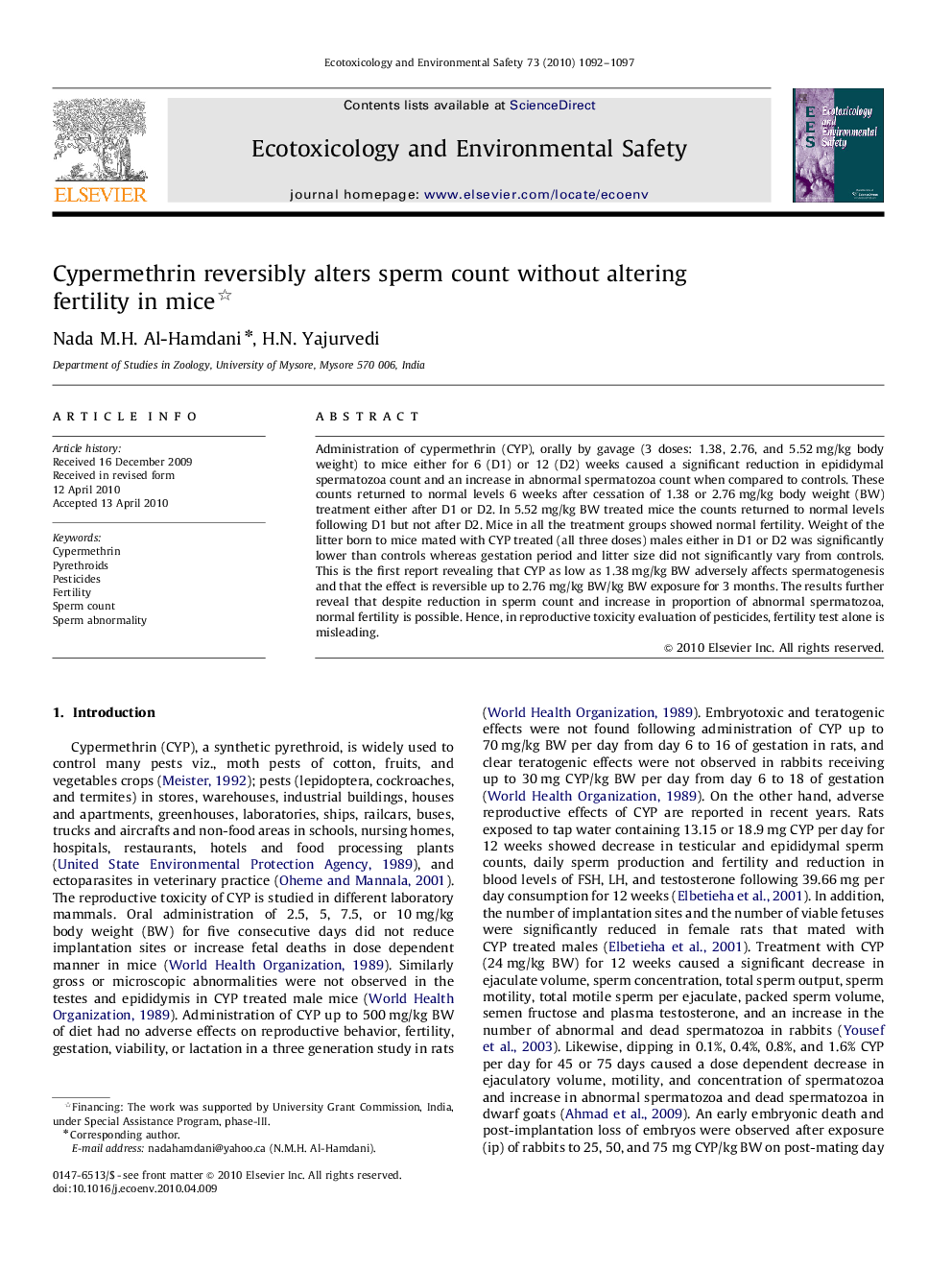| Article ID | Journal | Published Year | Pages | File Type |
|---|---|---|---|---|
| 4421693 | Ecotoxicology and Environmental Safety | 2010 | 6 Pages |
Administration of cypermethrin (CYP), orally by gavage (3 doses: 1.38, 2.76, and 5.52 mg/kg body weight) to mice either for 6 (D1) or 12 (D2) weeks caused a significant reduction in epididymal spermatozoa count and an increase in abnormal spermatozoa count when compared to controls. These counts returned to normal levels 6 weeks after cessation of 1.38 or 2.76 mg/kg body weight (BW) treatment either after D1 or D2. In 5.52 mg/kg BW treated mice the counts returned to normal levels following D1 but not after D2. Mice in all the treatment groups showed normal fertility. Weight of the litter born to mice mated with CYP treated (all three doses) males either in D1 or D2 was significantly lower than controls whereas gestation period and litter size did not significantly vary from controls. This is the first report revealing that CYP as low as 1.38 mg/kg BW adversely affects spermatogenesis and that the effect is reversible up to 2.76 mg/kg BW/kg BW exposure for 3 months. The results further reveal that despite reduction in sperm count and increase in proportion of abnormal spermatozoa, normal fertility is possible. Hence, in reproductive toxicity evaluation of pesticides, fertility test alone is misleading.
